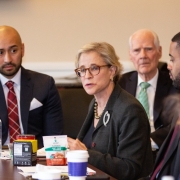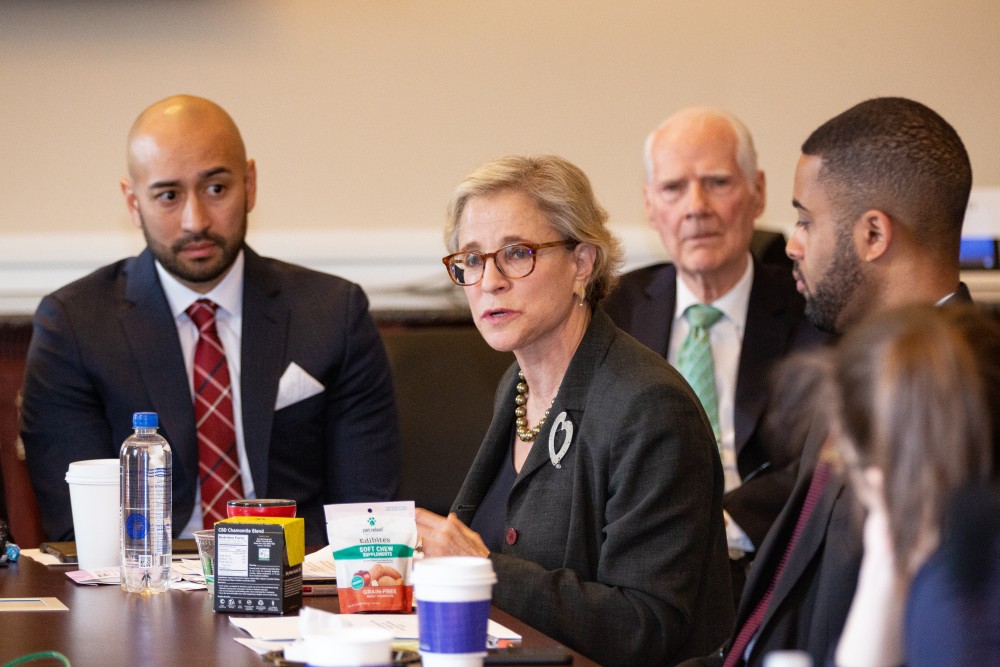Ten years later: ACA consistently proves to be America’s safety net, especially in times of crisis

By Nissa Shaffi, NCL Associate Director of Health Policy
Ten years ago, the United States Congress adopted the Affordable Care Act (ACA), after many decades of unsuccessful attempts at achieving universal health care by advocates. For the first time, the ACA provided coverage options for every American across the economic spectrum, expanding Medicaid in many states and offering the self-employed access to insurance on the open exchange. For NCL, the ACA is the safety net program the founders of the League sought to see put in place from the organization’s inception at the turn of the 20th Century.
Today with the rapid spread of the COVID-19 virus across America, patients’ access to health care is more critical than ever. Yet despite the clear need we all have for health care coverage, over the past decade, the ACA has been under attack by conservatives in Congress and survived multiple attempts at repeal. The latest came from the Texas v. United States case – and now it threatens to render the entire ACA unconstitutional, following the repeal of the ACA’s individual mandate provision. Why conservatives wish to deprive people of health care escapes us at the NCL. In fact, the ACA has transformed the way Americans interact with the healthcare system.
Throughout its short life, the ACA has cemented into law numerous consumer health protections and has expanded access to health coverage for over 20 million people. 37 states have expanded Medicaid, the health care program for low-income Americans. Prioritizing preventive care, the ACA mandated that health insurance providers cover preventive services for all adults, women, and children – free of cost to the patient. The ACA also made it unlawful for insurers to deny or reduce benefits based on preexisting conditions. These include diagnostic included screenings, vaccines, birth control, and access to certain medications. For the first time, those 26 under could retain their health coverage through their parents’ insurance plans.
Research has shown that ACA Medicaid Expansion has improved access to care, financial security, health outcomes, economic mobility, and have reduced uncompensated care. Despite the progress made by the ACA, there are still 29 million uninsured people in the United States. If the ACA is repealed, 25 million Americans may lose their coverage overnight, without the promise of its replacement. Perhaps the COVID-19 outbreak will change the calculus and bring home how devasting it would be to repeal the ACA. Insurers would no longer be obligated to provide protections offered by the law, allowing plans to deny coverage indiscriminately, leaving millions of families along with low-income and high-risk individuals without care.
The true impact of the ACA will be even more apparent as the national continues to grapple with the COVID-19 pandemic in the coming months. COVID-19 has upended the economy and affected virtually every industry and has caused unemployment to soar. On March 21, unemployment claims reached a record 3.3 million – the highest level of jobless claims in history (the Great Depression saw levels of 24 percent unemployment at its peak but there was no unemployment insurance safety net during the 1930s and thus no jobless claims, just breadlines). Economist Heidi Shierholz of the Economic Policy Institute estimates that by summer, approximately “14 million workers will lose their jobs due to the coronavirus shock.”
A report by FAIR Health estimates that potential treatment for COVID-19, resulting in an average six-day hospital stay, could total to a whopping $73,300 for the uninsured: a devastating prospect in the middle of a global financial collapse. With the increased loss of employer-based health insurance, the ACA proves to be more crucial than ever as individuals and families may turn to the health insurance marketplace to secure coverage. NCL is backing legislation – and the health plans support this too – to move workers losing jobs and health insurance to the COBRA program with heavy subsidies so they can ride out the pandemic – COVID-19 has exposed so many severe deficiencies in the healthcare system. To learn more about statewide efforts to mitigate the impact of COVID-19, click here.
While the fate of the ACA remains uncertain, it is still the law of the land. If you are concerned about loss of coverage during this time, several state-run health plans have enacted Special Enrollment Periods (SEPs) in response to the COVID-19 outbreak, click here to learn more. NCL believes that healthcare is a right and that protections offered by the ACA make this country a far stronger, more robust nation. We will continue to work diligently to protect universal access affordable and reliable health coverage. To learn more about what’s at stake and how you can help prevent the potential repeal of the ACA, click here.






 It’s a stressful time for consumers across the United States, with businesses closed, schools shut down, and more than a hundred million citizens under shelter-in-place orders. Unfortunately, scammers see this emergency as an opportunity to defraud consumers of hard-earned money we will all desperately need in the weeks and months ahead.
It’s a stressful time for consumers across the United States, with businesses closed, schools shut down, and more than a hundred million citizens under shelter-in-place orders. Unfortunately, scammers see this emergency as an opportunity to defraud consumers of hard-earned money we will all desperately need in the weeks and months ahead.














